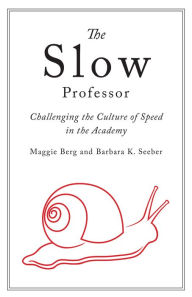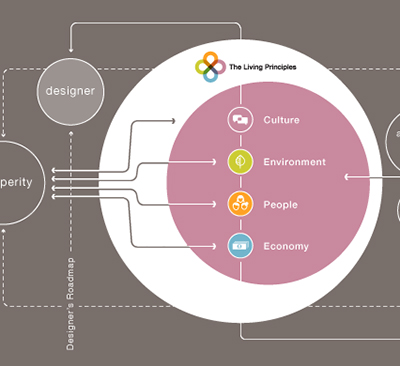Maturity and the Weight of Learning
This article by the great Simon Collison is something every serious design student should read. The centerpiece for me is below. The entire article is here, on The Manual.
Craftsmen and craftswomen discover through doing: honing their skills over a significant period of time with substantial commitment. They understand the importance of mistakes, and while they are prepared to throw away perhaps 70 percent of what they do in pursuit of the magical 30 percent, they still see that the entire 100 percent is important. -Simon Collison
The Slow Professor
No, "The Slow Professor" is not a comment on my intellectual prowess or lack thereof. It's actually a book, written by Maggie Berg, a professor of English at Queen’s University in Canada, and Barbara K. Seeber, a professor of English at Brock University, also in Canada. The title is inspired by other "Slow movements; Slow Food, Slow Science, Slow Travel...essentially, slow down.
“While slowness has been celebrated in architecture, urban life and personal relations, it has not yet found its way into education,” reads Slow Professor: Challenging the Culture of Speed in the Academy. “Yet, if there is one sector of society which should be cultivating deep thought, it is academic teachers. Corporatization has compromised academic life and sped up the clock. The administrative university is concerned above all with efficiency, resulting in a time crunch and making those of us subjected to it feel powerless.”
In a corporate university, argues Slow Professor, “power is transferred from faculty to managers, economic justifications dominate, and the familiar ‘bottom line’ eclipses pedagogical and intellectual concerns.” But slow professors nevertheless “advocate deliberation over acceleration” because they “need time to think, and so do our students. Time for reflection and open-ended inquiry is not a luxury but is crucial to what we do.”
This is definitely something we have to talk about.

The Living Principles For Design
The Living Principles for Design framework is a catalyst for driving positive cultural change. It distills the four streams of sustainability – environment, people, economy, and culture – into a roadmap that is understandable, integrated, and most importantly, actionable. Designers, business leaders, and educators can use The Living Principles to guide every decision, every day.

Visit their site

